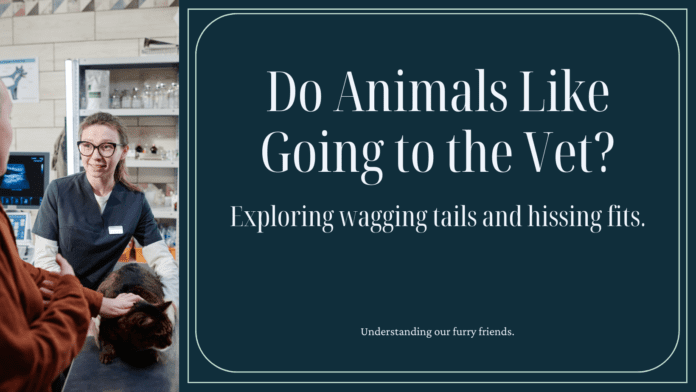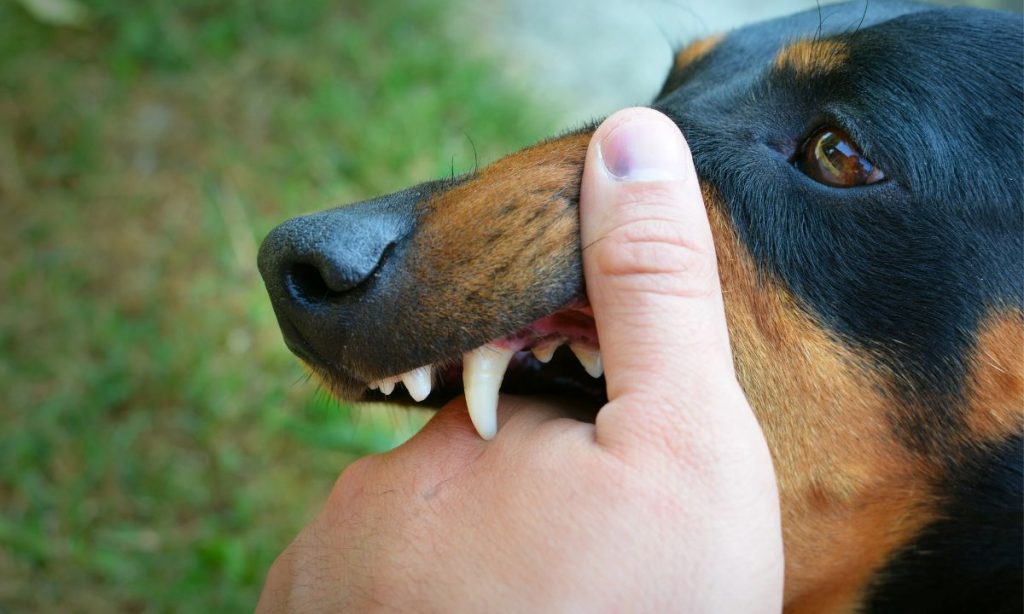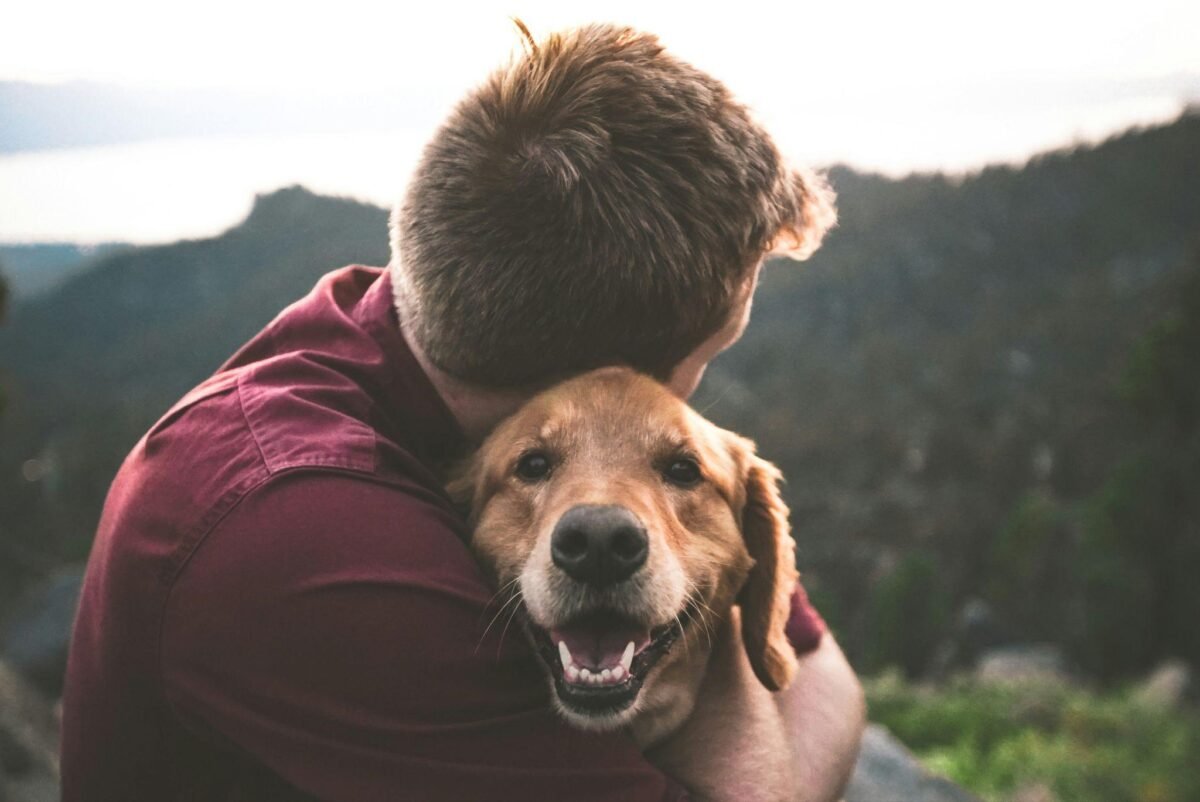Last Updated on April 15, 2024 by Dog Lover
Do Animals Like Going to the Vet? Decoding the Mystery of Wagging Tails and Hissing Fits
Let’s face it, taking your beloved pet to the vet isn’t always a walk in the park (pun intended).
For some furry (or feathery) friends, that carrier or leash transforms into a symbol of impending doom. But why exactly is a trip to the vet such a stressful experience for many animals?
And is there any way to make these visits less anxiety-inducing for both you and your pet?
Understanding the Animal Perspective
Imagine you’re whisked away to a strange, sterile environment filled with unfamiliar smells and sounds. People in white coats prod and poke you, and needles might even be involved!
This is essentially what a vet visit feels like to many animals. They lack the cognitive ability to understand the purpose behind these procedures, and their natural instinct is to fear the unknown.
Beyond the Fear Factor: Common Reasons Animals Dislike Vet Visits
- Unpleasant Experiences: If your pet has had a negative experience at the vet in the past, like a painful procedure, they might associate the vet clinic with discomfort.
- Sensory Overload: Vet clinics can be a cacophony of barking dogs, meowing cats, and unfamiliar noises. This sensory overload can be overwhelming for some animals.
- Loss of Control: Being restrained on an examination table or held during a procedure can be a stressful loss of control for animals who crave autonomy.
- Car Travel: For some pets, the car ride itself is a source of anxiety, making the entire vet visit a negative experience.
Turning the Tide: Creating Positive Vet Experiences
While a trip to the vet might never be your pet’s favorite activity, there are ways to make it less stressful for everyone involved.
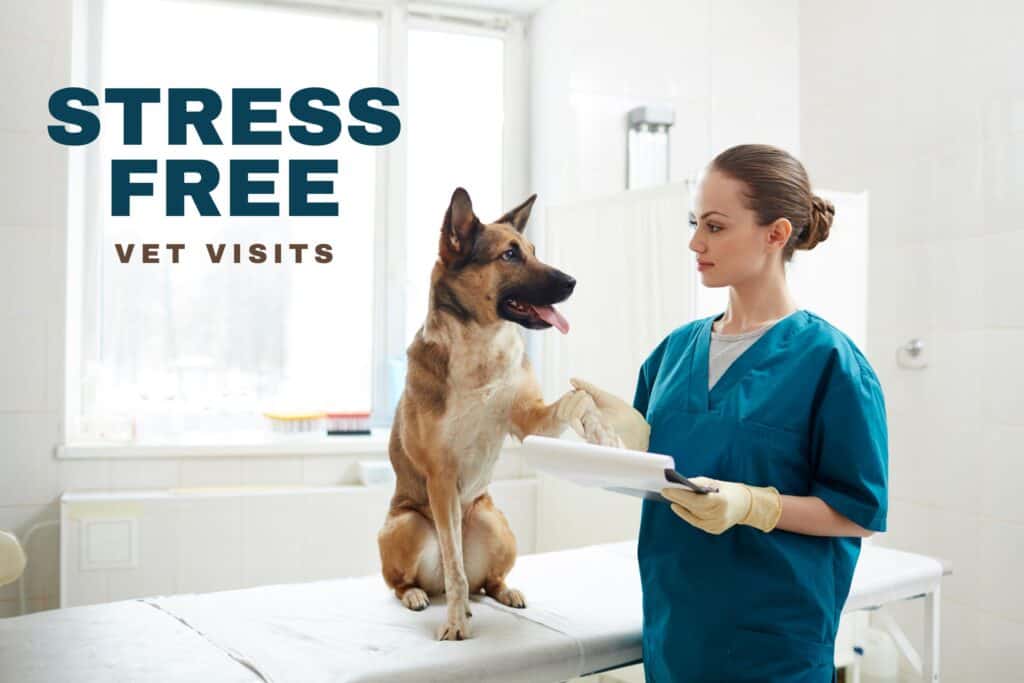
Setting the Stage for Success: Prepping Your Pet for a Positive Vet Visit
- Positive Associations: Start by taking your pet to the vet for non-medical reasons, like a friendly hello to the staff or a tour of the clinic. Pair these visits with treats and praise to create positive associations.
- Desensitization: If your pet is particularly car-averse, work on desensitization by taking short car rides to positive destinations like parks.
- Familiar Comfort: Bring a favorite blanket or toy from home to provide your pet with a sense of security during the visit.

Calming Techniques: Keeping Your Cool During the Appointment
- Stay Calm, They’ll Feel It: Our pets are incredibly adept at picking up on our emotions. If you’re feeling anxious, your pet will too. Project a calm and reassuring demeanor throughout the visit.
- Positive Reinforcement: Reward your pet with treats and praise for good behavior during the appointment. This positive reinforcement helps them associate the vet with positive experiences.
- Speak Their Language: Use calming tones and gentle body language when interacting with your pet during the visit.
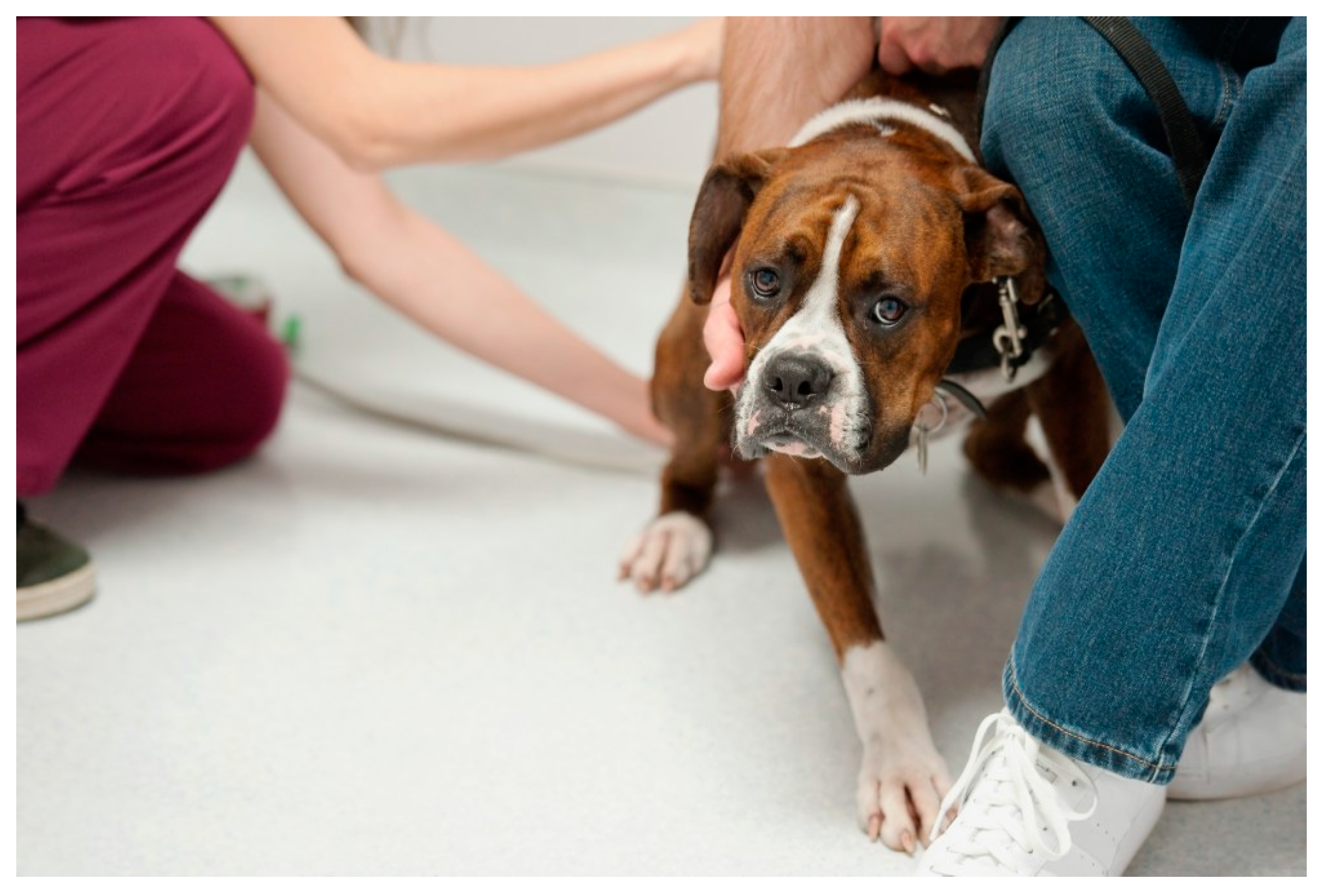
Beyond the Basics: Advanced Techniques for Vet Visit Anxiety
For some pets, even the best preparation might not be enough. In these cases, consider these additional strategies:
- DAP (Dog Appeasing Pheromone) Diffusers: These diffusers release a synthetic calming pheromone that can help reduce anxiety in dogs.
- Anti-Anxiety Medications: In severe cases, your veterinarian might prescribe anti-anxiety medication to help your pet cope with the visit.

Species-Specific Considerations: Understanding Your Unique Pet
While many commonalities exist, different pet species can have unique experiences at the vet.
Canine Companions: Understanding Doggy Discomfort
Dogs are often more social creatures and might be more stressed by unfamiliar people and animals at the vet clinic.
Focus on creating positive associations with the vet through regular, non-medical visits.
Feline Friends: Decoding the Cat Clinic Conundrum
Cats are notoriously territorial, and the car ride and unfamiliar environment of the vet clinic can be highly stressful for them.
Using a carrier that feels secure and familiar can help alleviate some of their anxiety.
Beyond Cats and Dogs: Considerations for Exotic Pets
Exotic pets like rabbits, birds, and reptiles often require specialized veterinary care. Familiarize yourself with veterinary practices specific to your exotic pet to ensure a smooth and stress-free visit.
The Power of Partnership: Working with Your Veterinarian
Communicate openly and honestly with your veterinarian about your pet’s anxieties. They can offer valuable advice and techniques specific to your pet’s needs.
Additionally, some veterinary clinics cater specifically to anxious pets and offer features like separate waiting areas or appointment scheduling
Creating a Routine of Wellness
Scheduling regular checkups, even when your pet seems healthy, is crucial for early detection of potential health problems.
These routine visits can also help your pet become more accustomed to the vet clinic environment, reducing anxiety over time.
Advocating for Your Pet: When to Speak Up
Don’t hesitate to speak up if you feel your veterinarian isn’t adequately addressing your pet’s anxiety.
A good veterinarian will work with you to develop a personalized plan to make vet visits less stressful for your pet.
Here are some questions you can ask your veterinarian:
- What techniques can I use to desensitize my pet to the car ride or carrier?
- Are there pheromone products or anti-anxiety medications that might be helpful for my pet?
- Does your clinic offer appointments specifically for anxious pets?
Championing Pet Wellness: The Bigger Picture
Positive vet experiences are essential not just for reducing pet anxiety but also for ensuring their overall health and well-being.
Regular veterinary care allows for early detection and treatment of potential health issues, leading to a longer and happier life for your furry (or feathery) friend.
Remember, a stress-free vet visit is a win-win situation for everyone involved. By taking the time to prepare your pet, remaining calm during the appointment, and working collaboratively with your veterinarian, you can turn those dreaded vet visits into positive experiences for both you and your beloved companion.
FAQs
Can I train my pet to associate the vet with positive experiences?
Absolutely! Take your pet to the vet for non-medical visits like greeting the staff or exploring the clinic. Pair these visits with treats and praise to create positive associations.
What are some calming techniques I can use during the vet appointment?
Project a calm demeanor, use gentle tones and body language, and reward your pet with treats and praise for good behavior. Consider using a DAP diffuser for dogs if anxiety is severe.
Should I medicate my pet before a vet visit?
Consult your veterinarian before administering any medication, including anti-anxiety meds. They can assess your pet’s specific needs and recommend the appropriate course of action.
Are there vets who specialize in treating anxious pets?
While not all clinics cater specifically to anxious pets, some offer features like separate waiting areas or appointment scheduling to minimize stress. Discuss your pet’s anxiety with your veterinarian to see if they offer any specialized services.
What if my pet has a negative experience at the vet? How can I prevent future anxiety?
Don’t punish your pet after a stressful vet visit. Focus on positive reinforcement techniques during future visits to rebuild trust. Communicate the negative experience to your veterinarian; they might recommend strategies to make future visits smoother.
Verified Sources
- American Veterinary Medical Association: https://www.avma.org/
- College of Veterinary Medicine at Cornell University: https://www.vet.cornell.edu/
- American Society for the Prevention of Cruelty to Animals (ASPCA): https://www.aspca.org/

